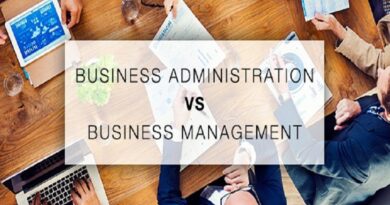4 Key Challenges face professional accountants Services Providers in 2021
Overview
Professional accountants have always had to deal with technological transformations, industry pressures, and various other external threats. But the COVID19 pandemic has permanently transformed the lives and roles of accountants forever. The pandemic proved that modern-day accountants’ services need to be technology-driven.
Accountants that can’t keep up with their clients’ technological demands will struggle to provide timely services. As digital transformation changes the playing field for accountants, several new challenges are arising for professional accountants. Here are the 4 main challenges professional accountants need to face in 2021 –
Providing Automated Financial Services
In a recent survey, 50% of professional accountants expressed concerns about automation replacing them in the future. The pandemic proved that human operators are still highly important to customers. But, modern-day human accountants need to be tech-driven. AI implementations will help all accounting firms address labor shortages, eliminate repetitive tasks, and my valuable customer data.
- Accountants need to develop separate sets of skills as a lot of their day-to-day work will become automated in 2021.
- Cloud-based accounting software makes it easy to monitor different client accounts (data sources) in real-time.
- Data analytics and visualization tools make it easier for accountants to create client reports, financial documents, etc.
- Budgeting, forecasting, etc., are also easier when professional accountants use advanced, AI-powered analytics tools.
Most accounting companies are moving into 2021 and 2022 with cautiousness. Their main goal is achieving cost-efficiency, and these tools can help them reach these objectives. But adopting advanced accounting tools will be a challenge for many accountants.
Tax Law Changes
Every year, accountants have to learn about recent changes in tax laws and apply this information to their work. But, the financial year of 2020-21 was different. Accountants have to go through thousands of pages of new tax-related provisions. These provisions were created as part of the COVID stimulus package.
Several regulations have changed completely in 2021.
- Many small businesses have received tax extension periods.
- The deductibility of PPP expenses has changed due to employees working from home.
- The complex process of applying for Paycheck Protection Program loans or PPP loan forgiveness has also changed.
Accountants who have such small-business clients must help their clients understand their total tax liability in the current economic landscape. Top tax accountants should help their clients navigate these tax law changes and access more funds to tackle future business challenges.
New Accounting Standards
Before the pandemic, professional accountants were preparing to get used to –
- New revenue recognition standards
- New lease accounting standards
- Updated Current Expected Credit Loss Model (CECL) accounting standards
However, due to the pandemic, implementing these new accounting standards was difficult. Many accounting firms decided to halt the implementation of these standards in 2020. But, in 2021, these changes will come into effect.
That’s why all accountants are staying up to date with new regulations around COVID stimulus packages. Once they get used to COVID-19-related regulations, they can start implementing these new accounting standards.
Expense Management Services
All accounting companies had to update their expense policies in 2021. They had to provide allowable home office expenses for their workers. These firms also had to help their clients manage their expenses during these turbulent times. The concept of employees working from home introduced entirely new expense management challenges.
For example, office supplies, office food, etc., were all common expenses in the past. But, due to the pandemic, they’ve all become potentially “flaggable” expenses. Accountants must assess which expenses their clients should mention in their tax reports. That means automating the expense management process to ensure all recorded expenses are legitimate.
Accounting teams that will leverage technology will be better able to deal with these challenges in the post-pandemic world!





Pingback: 4 Ways to Optimize Graduation Photoshoots in the Post-COVID-19 Era -